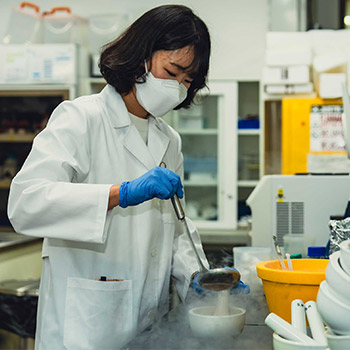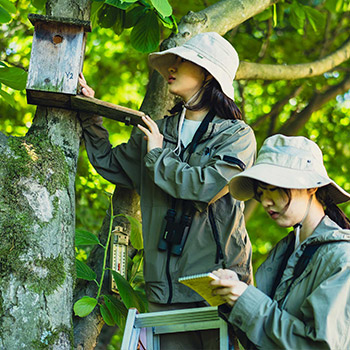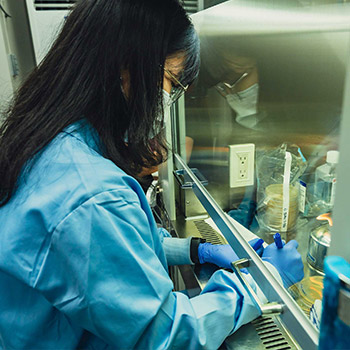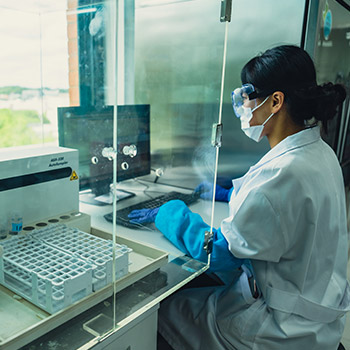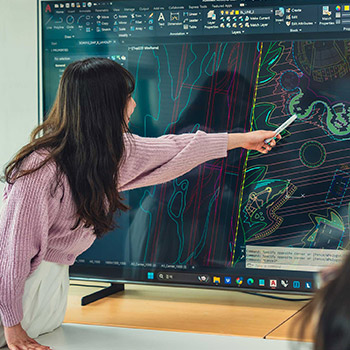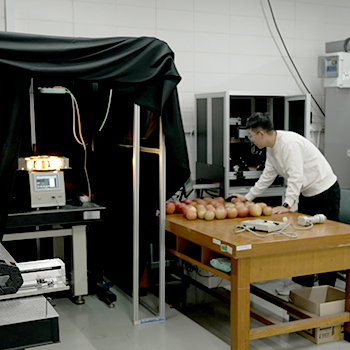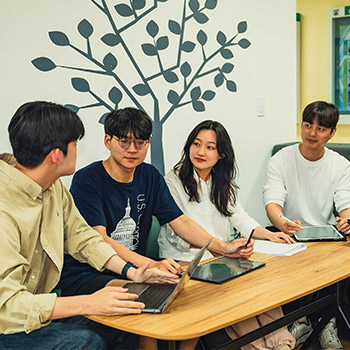Department of Agriculture, Forestry and Bioresources
☎ +82-2-880-4903
200-1008A
As sovereignty and rights of the industrial utilization of bioresources are reinforced from the Nagoya Protocol going into effect, the discovery of agriculture and forest bioresources, creative convergent research, and human resource development for bio-industriy are strongly required. The Department of Agriculture, Forestry and Bioresources is a graduate school department newly organized in 2020, uniting five majors: Crop Science and Biotechnology, Horticultural Science and Biotechnology, Forest Environmental Science, Environmental Materials Science, and Biomaterials Science. The Department aims to discover agricultural and forest bioresources and carry out creative convergent research and human resource development, to deal with radical changes in the agricultural environment according to the Fourth Industrial Revolution.
The Department will lead world-class development of human resources and convergent research by educational innovation, research innovation and globalization, based on academic achievements of five majors.
For innovative human resource development in the 21st century, the Department promotes interdisciplinary education among majors, establishment of new curriculums for convergent research, expansion of education through team-teaching, management of user-oriented curriculums focusing on problem-solving, and construction of an academic infrastructure with participatory curriculums.
The Department will reinforce the conservation of agricultural bioresources, competitiveness in the seed industry, genomics research, development of IT-based cultivation technologies, construction of smart farm systems, formation of sustainable eco-friendly bioresources ecosystem, development of cutting-edge biomaterials, and research on high value-added environmental materials.
Through the innovation of education, research and globalization, the Department will transcend boundaries between majors, and foster creative scholars leading convergent researches. Graduates will be pioneers of the 21st century industrial society in Universities, enterprises, research insititutes, etc. as leaders of agriculture and forest bioresources fields, and play important roles in the creation of high value-added bio-industries in the future.
The Department will lead world-class development of human resources and convergent research by educational innovation, research innovation and globalization, based on academic achievements of five majors.
For innovative human resource development in the 21st century, the Department promotes interdisciplinary education among majors, establishment of new curriculums for convergent research, expansion of education through team-teaching, management of user-oriented curriculums focusing on problem-solving, and construction of an academic infrastructure with participatory curriculums.
The Department will reinforce the conservation of agricultural bioresources, competitiveness in the seed industry, genomics research, development of IT-based cultivation technologies, construction of smart farm systems, formation of sustainable eco-friendly bioresources ecosystem, development of cutting-edge biomaterials, and research on high value-added environmental materials.
Through the innovation of education, research and globalization, the Department will transcend boundaries between majors, and foster creative scholars leading convergent researches. Graduates will be pioneers of the 21st century industrial society in Universities, enterprises, research insititutes, etc. as leaders of agriculture and forest bioresources fields, and play important roles in the creation of high value-added bio-industries in the future.

Programs
Program in Horticultural Science
Horticultural crops are important sources of food, environmental enhancement, and personal enjoyment. The horticultural science program provides students with higher education and research opportunities in biotechnology, production, management, utilization, and postharvest handling of horticultural crops. The program focuses on plant breeding, genetics, basic and applied plant production technologies, environmental conservation, and postharvest technology.
Program research fields include: physiology, ecology, and genetics of horticultural crops and native plants. Research also covers the development of high quality, energy-saving, and environmentally friendly production systems, environmental and chemical control of plant growth and development, construction of genetic maps and the development of molecular markers, breeding of disease-resistant and functional cultivars using conventional methods and biotechnology, rapid mass production of virus-free plants and secondary metabolites, postharvest management and processing for product quality maintenance; advanced and protected horticulture and soilless culture, and the improvement of living environments using ornamental and landscape plants. Students in their second academic year can begin to specialize in horticultural science.
Students in graduate school can study in the following areas: vegetable science, pomology, floriculture and landscape plants, plant breeding, horticultural crop biotechnology and genomics, postharvest physiology and technology, and plant environment control. Career opportunities in horticultural science are numerous in all aspects of plant production and the related agribusiness fields both in the government and the private sector. Horticultural science students also have the opportunity to prepare for graduate school in preparation for teaching, research, or extension work.
Program research fields include: physiology, ecology, and genetics of horticultural crops and native plants. Research also covers the development of high quality, energy-saving, and environmentally friendly production systems, environmental and chemical control of plant growth and development, construction of genetic maps and the development of molecular markers, breeding of disease-resistant and functional cultivars using conventional methods and biotechnology, rapid mass production of virus-free plants and secondary metabolites, postharvest management and processing for product quality maintenance; advanced and protected horticulture and soilless culture, and the improvement of living environments using ornamental and landscape plants. Students in their second academic year can begin to specialize in horticultural science.
Students in graduate school can study in the following areas: vegetable science, pomology, floriculture and landscape plants, plant breeding, horticultural crop biotechnology and genomics, postharvest physiology and technology, and plant environment control. Career opportunities in horticultural science are numerous in all aspects of plant production and the related agribusiness fields both in the government and the private sector. Horticultural science students also have the opportunity to prepare for graduate school in preparation for teaching, research, or extension work.

Faculty
| Name | Major | TEL | |
|---|---|---|---|
| Professor Kang ByoungCheorl |
Molecular Breeding and Genetics | +82-2-880-4563 | bk54@snu.ac.kr |
| Professor Chun Changhoo |
Vegetable Science | +82-2-880-4567 | changhoo@snu.ac.kr |
| Professor Choi Doil |
Molecular Genetics | +82-2-880-4568 | doil@snu.ac.kr |
| Professor Lee Eun Jin |
Post Harvest Biology and Technology | +82-2-880-4565 | ejinlee3@snu.ac.kr |
| Professor Huh Jin Hoe |
Plant Developmental Genetics | +82-2-880-4562 | huhjh@snu.ac.kr |
| Associate Professor Segonzac Cecile Marie Helene |
Horticultural Crop Molecular Physiology | +82-2-880-2229 | csegonzac@snu.ac.kr |
| Assistant Proffesor Hyo Beom Lee |
Floricultural Sciences | +82-2-880-4561 | hyobumi1003@snu.ac.kr |
| Assistant Professor Tae In Ahn |
Greenhouse Horticulture and Plant Factory | +82-2-880-4574 | tiahn@snu.ac.kr |
| Assistant Professor Rho, Hyungmin |
Pomology & Environmental Plant Physiology | +82-2-880-4566 | tonyrho@snu.ac.kr |





